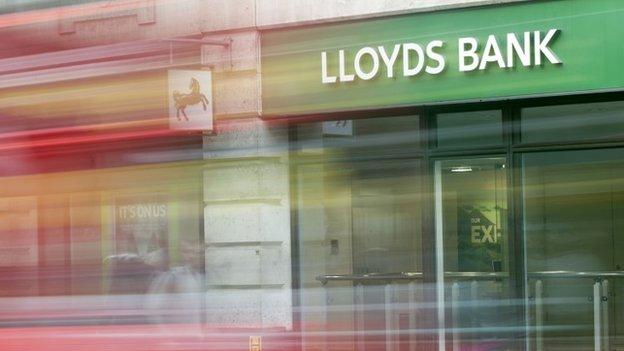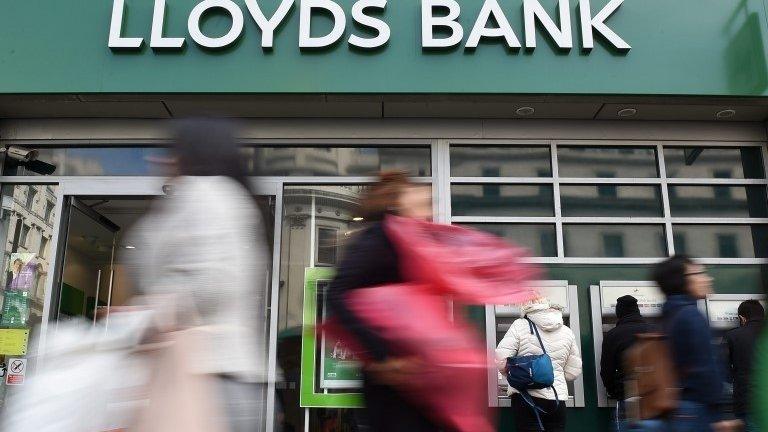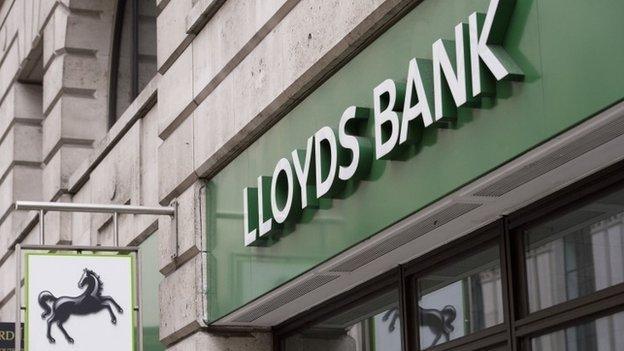Lloyds Banking Group: Government reduces stake to below 17%
- Published

Lloyds Banking Group received £22.5bn of taxpayers' money during the financial crisis
The UK government's stake in Lloyds Banking Group has fallen below 17% after more shares were sold to investors.
UK Financial Investments (UKFI), the body responsible for handling the government's stakes in the privatised banks, has been gradually selling down the Treasury's stake in Lloyds.
The banking group received £22.5bn from taxpayers during the financial crisis.
Investment bank Morgan Stanley handled the share sales.
The government originally owned a 41% stake in the bank, but started selling Lloyds shares in 2013. This latest sale means that about £11.5bn has been returned to the taxpayer so far.
"Today's announcement shows the further progress made in returning Lloyds Banking Group to full private ownership and enabling the taxpayer to get their money back," Lloyds Banking Group said in a statement.
UKFI's "trading plan", under which government-owned Lloyds shares have been sold to big institutional investors, was was due to end at the end of June. But it has now been extended to 31 December.
The Treasury said the extra six months would help it meet Chancellor George Osborne's pledge to sell a further £9bn of Lloyds shares in 2015-16.
Before the general election, Mr Osborne announced that a tranche of shares would also be made available to the public, possibly this year.
- Published5 June 2015

- Published1 June 2015
